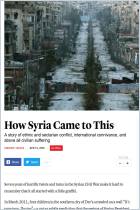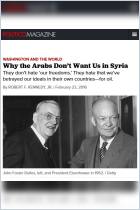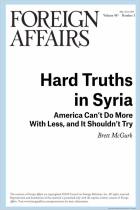Join getAbstract to access the summary!

Join getAbstract to access the summary!
Robert F. Worth
Aleppo After the Fall
New York Times Magazine, 2017
What's inside?
War-weary Syrians are turning into reluctant supporters of the once-reviled Assad regime.
Recommendation
The battle over the Syrian city of Aleppo has been fierce and brutal. When the Syrian army captured the city in late 2016, it marked a strategic turning point in the civil war in favor of the Syrian regime. Robert F. Worth, a veteran Middle East reporter for The New York Times, traveled to the country in March 2017 to meet some of the Aleppo residents who stayed. He meets “urban Robinson Crusoe” Abu Sami, who stuck it out alone in his home for four and a half years until the fighting ended, and the busy engineer Tarif Attora, who has been risking his life running a network of volunteers repairing electricity lines in both rebel- and regime-controlled areas of the city. Although Aleppo’s survivors have dealt with their situation in different ways and supported various warring factions, many of them are waking up to the realization that they won’t be able to achieve freedom by destroying each other.
Summary
About the Author
Robert F. Worth spent 14 years as a correspondent for The New York Times and was its Beirut bureau chief from 2007 to 2011. He is the author of A Rage for Order, a book on the Arab Spring uprisings of 2011.

















Comment on this summary